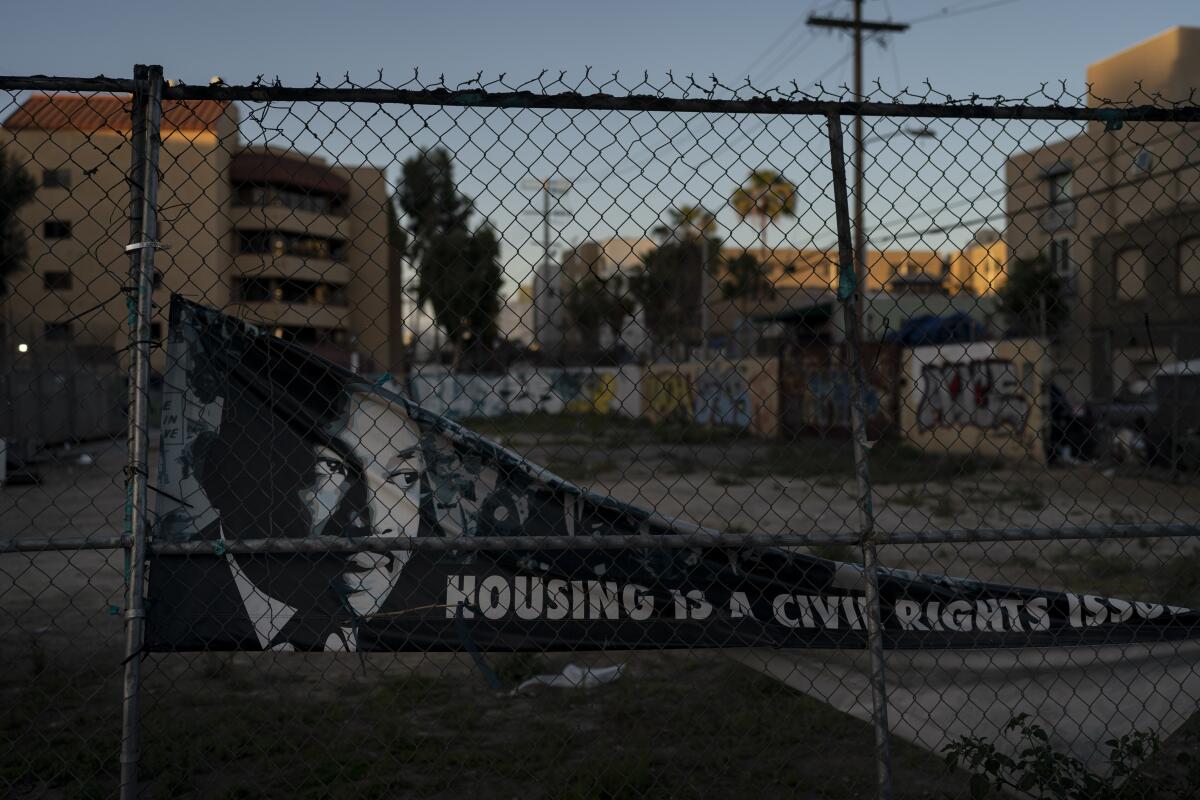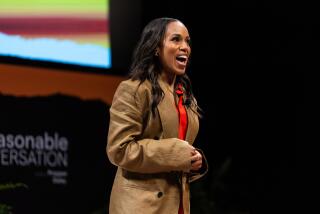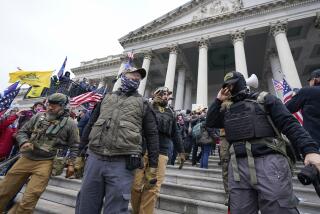Op-Ed: Martin Luther King Jr. was a trouble-maker. That’s why we need him

- Share via
With voting rights, workers rights and democracy itself under attack in a deeply divided nation, the man we honor on Monday should not be the Rev. Martin Luther King Jr., the convenient hero, soothing the conscience of an anxious America, but King, the inconvenient hero, challenging this country to undergo a radical revolution of values to live up to its ideals.
When right-wing Republicans fight to restrict voting rights, deny workers rights, and send a cadre of armed thugs to thwart the peaceful transfer of power, King’s legacy is being trampled.
This desecration of what King and the many foot soldiers of the Black freedom struggle fought for bothers me. But what bothers me even more is how difficult it is for so many Americans to get beyond the non-threatening King of August 1963 on the steps of the Lincoln Memorial telling the millions assembled of his dream for America. King was certainly a peacemaker but he was also a troublemaker. And, it is King, the troublemaker, we need most now.
When Florida Gov. Ron DeSantis quotes King to support a bill banning the teaching of racism in American history, we need King, the enemy of lies, who called racism one of the great evils of this nation.
When Rep. Marjorie Taylor Greene (R-Ga.) compares King’s work to end segregation with her efforts to end vaccination against COVID-19, we need to remember the early pandemic, when the disease disproportionately killed people of color, in part because it laid bare glaring inequities in America’s healthcare system. We also need to remember the King who decried injustice in healthcare as “shocking and inhumane,” though some claim King actually used the much stronger word, “inhuman.”
When failed Arizona gubernatorial candidate Kari Lake claimed that King would be a MAGA Republican, we need King, the radical hero, who was assassinated for fighting against everything that Lake and MAGA Republicans like her stand for.
But where do we find this inconvenient hero?
One place is actually where most turn to find King, in his “I Have a Dream” speech. First, let’s remember that the full name of the march that August was called the “March on Washington for Jobs and Freedom.” Let’s also remember that at the behest of singer Mahalia Jackson, King ad-libbed the “I have a dream” portion of that speech.
The lines of that speech most often quoted and misrepresented have to do with the sons of former slaves and the sons of former slave owners sitting at the table of brotherhood; with little Black boys and Black girls joining hands with little white boys and white girls as sisters and brothers; and, with people being judged by the content of their character not the color of their skin.
But King’s speech was aspirational, not representational. Those wonderful images of brotherhood and sisterhood were not present in America when King delivered that speech, and they are not present in America today. King knew that. He says as much toward the end of the speech when he notes that his dream will never become reality until Black men and women in the South have the right to vote, and Black men and women in the North have something to vote for. He says as much when he implores those in the crowd to go back to the South and to work for these and other civil and human rights even in the face of great adversity and suffering. Just because King dreamed what America could be, did not make it so.
We should also turn to another speech by King, often overlooked and infrequently quoted, to cut through the gloss so often imposed on him now. Delivered at Riverside Church in New York City on April 4, 1967, the speech titled “Beyond Vietnam: A Time to Break Silence” discomfited many liberal white supporters, and even those close to him, by taking a firm stance against the Vietnam War, and in support of poor people, including the Viet Cong, the world over.
So much of this speech rings as true today as it did in 1967, and a few lines stick out as prophetic. On technology and greed, King said, “When machines and computers, profit motives and property rights, are considered more important than people, the giant triplets of racism, extreme materialism, and militarism are incapable of being conquered.”
On alleviating poverty, he said, “A nation that continues year after year to spend more money on military defense than on programs of social uplift is approaching spiritual death.”
On hatred, King offered, “We can no longer afford to worship the god of hate or bow before the altar of retaliation. The oceans of history are made turbulent by the ever-rising tides of hate. And history is cluttered with the wreckage of nations and individuals that pursued this self-defeating path of hate.”
And on a path forward, King opined, “We are now faced with the fact, my friends, that tomorrow is today. We are confronted with the fierce urgency of now. In this unfolding conundrum of life and history, there is such a thing as being too late.”
These are the words of an inconvenient hero speaking to our conditions now. If Americans are to rescue democracy from the clutches of totalitarianism, protect the rights of workers and poor people, and uphold the sanctity of voting, these are the words we must listen to and act upon. This is the King we must hear.
Clyde W. Ford’s latest book is “Of Blood and Sweat: Black Lives and the Making of White Power and Wealth.” He was a student at the MLK Center for Nonviolent Social Change and is a contributing writer to Opinion.
More to Read
A cure for the common opinion
Get thought-provoking perspectives with our weekly newsletter.
You may occasionally receive promotional content from the Los Angeles Times.










